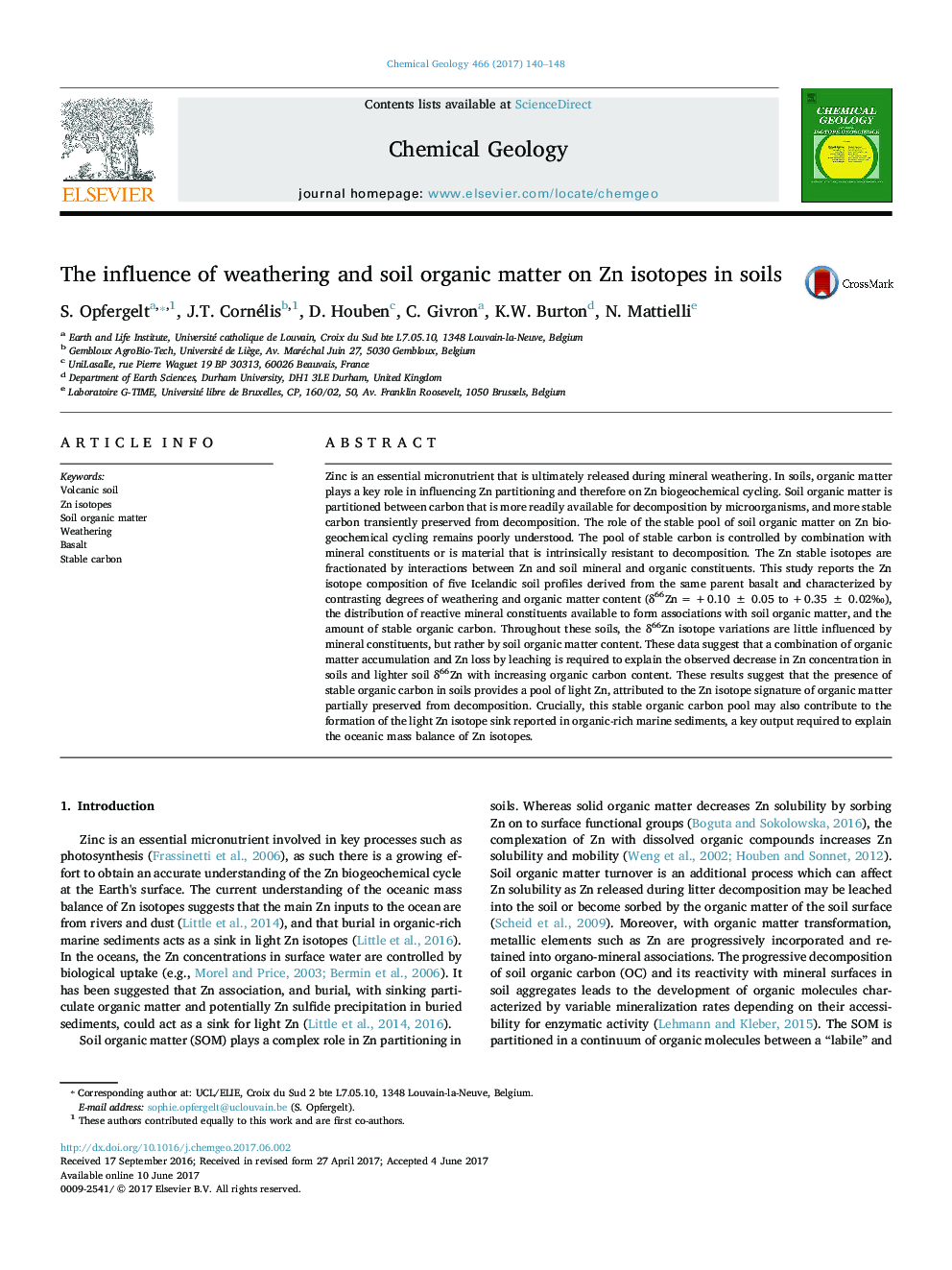| کد مقاله | کد نشریه | سال انتشار | مقاله انگلیسی | نسخه تمام متن |
|---|---|---|---|---|
| 5782824 | 1637508 | 2017 | 9 صفحه PDF | دانلود رایگان |

- Soil δ66Zn more influenced by soil organic matter than by mineral constituents
- Zn loss by acidification and with dissolved organic carbon yields light soil δ66Zn
- A pool of stable soil organic carbon may store a sink of light Zn isotopes in soils
- Stable organic carbon δ66Zn may record a Zn contribution of undecomposed organic C
Zinc is an essential micronutrient that is ultimately released during mineral weathering. In soils, organic matter plays a key role in influencing Zn partitioning and therefore on Zn biogeochemical cycling. Soil organic matter is partitioned between carbon that is more readily available for decomposition by microorganisms, and more stable carbon transiently preserved from decomposition. The role of the stable pool of soil organic matter on Zn biogeochemical cycling remains poorly understood. The pool of stable carbon is controlled by combination with mineral constituents or is material that is intrinsically resistant to decomposition. The Zn stable isotopes are fractionated by interactions between Zn and soil mineral and organic constituents. This study reports the Zn isotope composition of five Icelandic soil profiles derived from the same parent basalt and characterized by contrasting degrees of weathering and organic matter content (δ66Zn = + 0.10 ± 0.05 to + 0.35 ± 0.02â°), the distribution of reactive mineral constituents available to form associations with soil organic matter, and the amount of stable organic carbon. Throughout these soils, the δ66Zn isotope variations are little influenced by mineral constituents, but rather by soil organic matter content. These data suggest that a combination of organic matter accumulation and Zn loss by leaching is required to explain the observed decrease in Zn concentration in soils and lighter soil δ66Zn with increasing organic carbon content. These results suggest that the presence of stable organic carbon in soils provides a pool of light Zn, attributed to the Zn isotope signature of organic matter partially preserved from decomposition. Crucially, this stable organic carbon pool may also contribute to the formation of the light Zn isotope sink reported in organic-rich marine sediments, a key output required to explain the oceanic mass balance of Zn isotopes.
Journal: Chemical Geology - Volume 466, 5 September 2017, Pages 140-148